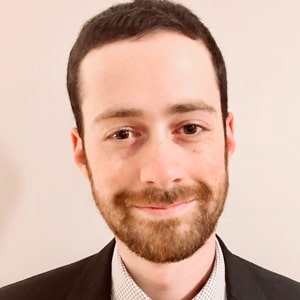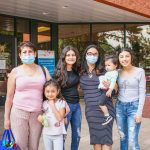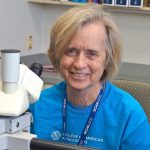Mentor Program Pairs Pathologists with Specialty’s Future Leaders
As the past year has shown, pathologists and medical laboratories remain at the center of quality, patient-centered care. A large part of the CAP Foundation’s mission is to ensure that tomorrow’s pathology leaders have access to essential resources and education to help carry the specialty into the future.

Jacob Jerome, a 2020 Medical Student Travel Award recipient
For the Medical Student Travel Award, Leadership Development Award, and Informatics Award, the CAP Foundation pairs medical students and early-career pathologists with CAP Junior and Fellow member mentors who can provide essential guidance to these soon-to-be doctors and pathologist leaders. Twenty-one award winners were connected to mentors in 2020, and the Foundation plans on increasing that number in the years to come.
As the CAP Foundation has heard from former participants, the experience is one that often helps lead medical students into a rewarding career in pathology and pathologists into leadership roles within the specialty and their institutions.
Jacob Jerome was a fourth-year medical student at Penn State College of Medicine in 2020. He said the Medical Student Award and mentor pairing with Lianna Goetz, MD, were essential in learning more about what the specialty had to offer and whether it would be a good fit for his career.
“In a small field that, unfortunately, gets little airtime in medical school, mentoring plays an especially critical role,” Jerome said. “Given that pathologists from across the country are involved in the CAP, the CAP Foundation’s mentorship program represents a unique and impressive opportunity to find mentors that can support you in any aspect of your career, both professional and personal.”
Specifically, Jerome said Dr. Goetz was invaluable in his residency application process and even provided opportunities for virtual hands-on experience.
“My mentor talked me through the process, gave me great advice and preparation tips, and shared her personal journey through the process with me,” Jerome said. “I believe her help significantly contributed to my success in the application process and MATCH.”
Having been through the application and interview process herself, Dr. Goetz was happy to pass along some useful pointers while also giving a wider view of the specialty, its challenges, and its strengths.
“I was able to offer advice on interviews, specifically on important do’s and don’ts from my personal experience,” Dr. Goetz said. “We spoke about the US graduate medical student shortage in pathology, future changes in the USMLE exams, professional development, work-life balance, subspecialty interest, and other factors affecting the future practice of pathology.”
Dr. Goetz also organized virtual one-on-one sign-out with attending physicians in a variety of surgical pathology subspecialties so that Jerome could learn more about the work, gain valuable experience, and make more contacts in the field.
“It gives them a window into a day in the life of a pathology resident or attending and is a great opportunity for broadening their network,” Dr. Goetz explained.
Through his one-on-one virtual shadowing sessions, Jerome said he was able to refine his clinical interests and help narrow down possibilities for future subspecialties in his career. Not only that, but attending physicians offered up their experiences and thoughts on practice settings, life as a resident, and work-life balance, all of which provided Jerome with a unique, more in-depth understanding and points of view not typically found in a pamphlet or on a program website.
According to Jerome, the experience was invaluable and indicative of the specialty which he will soon belong to.
“Throughout the process, every resident and attending I interacted with was incredibly excited to talk with me, share their journey, give advice, and teach,” Jerome said. “This excitement for the field and for supporting the future generations of pathologists is something that has always drawn me to the field.”


